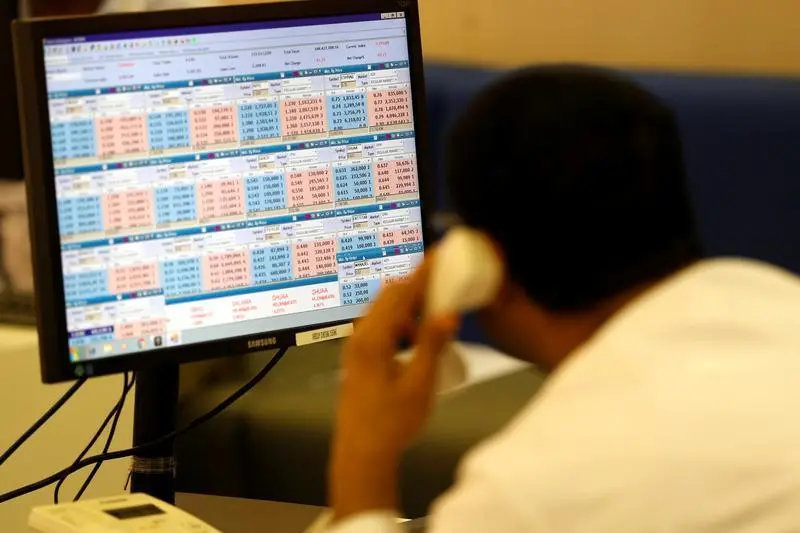PHOTO
Major stock markets in the Gulf ended higher on Thursday, tracking oil prices and global shares higher, with the Dubai index boosted by a surge in Emaar Properties.
MSCI's 47-country index of world shares up 0.3%, as investors waited to hear the latest reaction of the world's top central bankers to soaring inflation.
The Federal Reserve's annual monetary policy conference in Jackson Hole, Wyoming is due to start on Thursday and of particular interest is Fed Chair Jerome Powell's speech on Friday.
Dubai's main share index advanced 1.2%, with Emaar Properties finishing 4% higher, its biggest intraday gain in over a year, on plans to lift the foreign ownership limit. Shareholders are to also vote on Sept. 21 on the acquisition of certain assets of Dubai Holding for a mandatory convertible bond of 3.75 billion dirhams ($1.02 billion). The company also entered a definitive deal to divest 100% of its fashion e-commerce venture Namshi to Noon, an e-commerce firm, for $335.2 million.
Saudi Arabia's benchmark index gained 1.2%, buoyed by a 1.6% rise in Al Rajhi Bank and a 0.8% increase in Retal Urban Development Co. Oil prices, a key catalyst for the Gulf's financial markets, firmed on the prospect that the OPEC+ producer group could curb oil supplies, but the more bearish possibility of an agreement that would return sanctioned Iranian oil exports to the market capped gains. Brent crude rebounded above $100 after Saudi Arabia floated the idea of OPEC+ output cuts to support prices.
The Qatari index gained 0.7%, with petrochemical maker Industries Qatar advancing 2.1%.
In Abu Dhabi, the index added 0.2%.
Outside the Gulf, Egypt's blue-chip index climbed 1.8%, with 28 of thirty stocks on the index closing higher including top lender Commercial International Bank, which was up 1%. The Egyptian stock market returned to the positive side thanks to a strong buying trend from local investors which could support an uptrend, said Daniel Takieddine, CEO MENA BDSwiss.
The index, which is down more than 13% so far this year, has come under pressure because of a sharp slide in foreign portfolio investor holdings and rising costs of key commodity imports, especially since Russia's invasion of Ukraine.
(Reporting by Ateeq Shariff in Bengaluru; Editing by Shailesh Kuber)




















